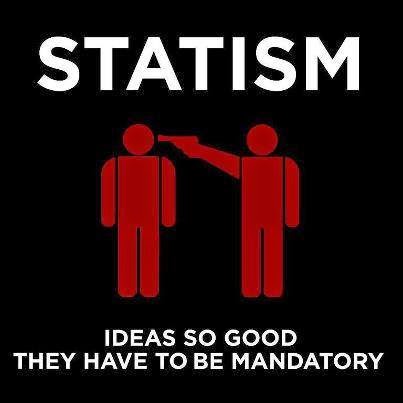Ownership Society Institute
May, 2008
- Make the poor rich
- Make America wealthier
- Extinguish $45 trillion in unfunded debt
- Reduce the Budget by $1.3 trillion
- Deliver the largest tax cut in history
- Make 100% of Americans capitalists
- Increase the value of the US dollar
- Make American products competitive
- Reduce management-labor difficulties
- Cut our national debt from $9 to $5 trillion
- Economically emancipate women
- Increase retirement bnefits
Introduction For the past year ordinary Americans have made two things crystal clear:
First they want economic change. They want their politicians to do something about either reducing the price of gas, food, services and other products or increasing their income and wealth - or both.
Second they want politicians to start working for the people. They are fed up with hearing promises from Washington that are never kept and continuous excuses f why they aren’t.
Note: these concerns have been successfully tested by Barack Obama during his nominating campaign.
---------
This short booklet outlines a plan ordinary Americans and their politicians need to hear, promote and adopt. The plan will make ordinary Americans richer without asking them to invest a dime of their own money nor change any aspect of their present employment or activities. The plan has been designed to enable Americans - even those without high school educations - to achieve the American Dream of financial independence so long as they remain stable and industrious during their working life.
The plan is called the Rise Up America (RUA) plan and has been designed to be a force for unity enabling all Americans to pull in the same direction. Rather than having segments of the population competing and warring with each other, the plan will unify the efforts of all Americans.
Pass this booklet on to your friends to start the ball rolling to restructure our government and streamline our private sector to work for the people rather than against them. Make sure your political representatives are aware of RUA and are promising to enact legislation to put the Plan into effect
Core PremiseThe Rise Up America plan is based on one core premise and that is that Americans can do a better job than their government in managing their money. This booklet will be devoted to illustrating how major government entitlement programs including Social Security and Medicare fail to meet the intended or perceived purposes they were enacted to fulfill and in fact severely limit the growth of the American economy.
Current Social Security, Disability and Medicare ProgramsToday Americans pay 15.3% of their annual income up to $102,000 (2008) in payroll taxes to the Federal government in return for a monthly Social Security check and medical coverage at retirement as well as disability coverage for all ages.
Those workers who are employees have 7.65% of their income withheld for payroll taxes and employers match that amount and send the entire 15.3% to the government. Self-employed individuals pay the entire 15.3% at the same time their income taxes are due.
The government does not save the money in a fund for the employee’s future retirement but immediately spends it to pay benefits to currently disabled and retired Americans. Many Americans have been led to believe these monies are saved in the Social Security Fund. They are not.
Payroll taxes are withheld (or paid) on all earnings no matter how old an individual is. Those who attain the retirement age of 67 however, are entitled to a monthly retirement check from Social Security and coverage for their medical needs under Medicare.
Even though Americans pay 15.3% of their lifetime income in payroll taxes, they are not entitled to a nest egg. Unlike a savings account where an amount is accumulated for the saver, there is no accumulation of an individual’s investment in Social Security and Medicare. If a taxpayer dies before retirement all payroll taxes paid by them throughout their life are lost and any government obligation to them extinguished.
Assume a long-haul truck driver made $60,000 a year for his 50-year working life dies at 67 years of age. The $450,000 he paid in payroll taxes over the years is forfeited to the government and the government has no obligation to pay his heirs anything. This is unlike the result he could have achieved if he had invested this amount in an interest-bearing savings account or in an account where his money was invested in stocks or bonds and it compounded over the years.
Social Security is perceived by the public to be a retirement pension. Congressmen will quickly correct that misperception describing it rather as a “safety net” – specifically a benefit not designed as a retirement pension. Its reason for existence is to enable retired people to have enough money to avoid starvation. The average Social Security check is just over $1,000 a month.
Both the Social Security and Medicare programs are tragically under funded. The government accounting office fixed the unfunded liability at $45 trillion as of September 30, 2007. As the funding of these programs is on a pay-as-you-go basis both programs are technically bankrupt. To date politicians have failed to correct the problem suggesting however that the only solutions are to either raise taxes or cut benefits. The Rise Up America plan to be discussed below has been designed to substantially “increase” those benefits while simultaneously generating the largest tax cut in US history.
Proposed Solution – Rise Up America PlanThe Rise Up America plan is a comprehensive solution to many problems faced by America and its people as well as a blueprint to literally explode the growth of the American economy. This booklet will touch on some of the major problems that Rise up solves or will assist in solving. It will illustrate how the American economy is severely limited by existing government policies and practices.
The first problem it solves is changing the misguided method of financing Social Security, Disability and Medicare entitlements. Instead of legislatively assisting Americans in saving for their own retirement government has misled them into perceiving that Social Security’s “safety net” is a retirement pension.
The Rise Up America plan proposes to return the responsibility for funding the retirement and old-age medical needs back to the individual retirees. In other words, the Plan proposes to take the responsibility for funding retirement away from the government and place that responsibility directly on the shoulders of individual Americans.
In order to do that, the Plan must make every American wealthy enough to cover those costs. That includes the poor and lower-income Americans who presently can’t save enough to retire on. In addition the Plan must pay off all obligations under the old plans until all the participants die. As a part of the Plan to transition to Rise Up, the payment of those legacy obligations will be grandfathered and guaranteed by the government.
The Plan increases the monthly retirement check from ten to twenty times more than it is today and allows the individual to build a multimillion dollar nest egg to finance their retirement and pass that wealth on to succeeding generations.
To enable the poor and lower-income Americans to participate along with wealthier Americans, Rise Up will divert the 15% presently paid in payroll taxes directly into a personal investment account owned by the taxpayer and held by an independent entity operating solely as a trust. The funds will be held in the trust until retirement. As explained below a sizeable nest egg will be accumulated for all taxpayers.
The reason poor and lower-income Americans have been unable to save for retirement is they never have enough left over after paying their expenses to save for their retirement. Under Rise Up their payroll taxes accumulate in their own account which is invested at their direction into several different stock-indexed funds which for the last thirty years have been growing at over 10% per year. E.g. the S&P 500 stock index has been growing at 12.8% over the last 30 years.
The average American household earned over $48,000 a year in 2006 according to the US Census Bureau.. Assuming that in 2008 that figure has approached $50,000 let’s take a look at how the 15% withheld weekly and invested in indexed stock funds would do over a 40 year working life.
The $7,500 of annual withholding (15% on $50,000) if invested weekly for 40 years and earning 10% a year would generate a nest egg of $4,004,000. If the taxpayer earns the same 10 % in his 41st year (the first year of retirement) he will have earned $400,400 that year which when paid out in installments amounts to a monthly retirement check of $33,000 - 12 times a year.
Under Social Security the taxpayer is not entitled to a nest egg. His investment of $300,000 ($7,500 x 40 years) in payroll taxes is lost to him. His scheduled Social Security “safety net” amounts to $1,345 a month according the Social Security Administration’s Quick Guide calculator or 1/24th of the amount he would get under the Plan.
Why Rise Up America is So PowerfulThere is no mystery why the Rise Up America plan generates such enormous nest eggs and monthly checks. It is based on compounding. Thought of simply when you put a dollar in the bank each year for 40 years and the bank pays you 10% interest every year on the ending balance of the previous year you would accumulate an account of $442. Now had you not received interest on the account you would only have $40 at the end of 40 years.
The reason you end up with so much more is that the account compounds over the years because the 10% is earned not only on the $1 contributed every year but also on the accumulated interest*. See the table below to see how large a nest egg you would accumulate at your income level.
http://hstrial-rmcdonald1.homestead.com/indextablenesteggsvarious.xlsFootnote
For example, in the 39th year the account has $401 in it. The 10% interest it earns in the 40th year is $40 (10% on the ending balance of the 39th year). When the $1 contributed is added to the $401 beginning balance and the $40 earned is added the account totals $442 at the end of 40 years. Rate of ReturnThe average citizen has a difficult time believing the enormous sums that can be accumulated under long-term investment plans like Rise Up. Their experience is generally limited to the small percentages they get from the bank in interest. As far as a rate of return on stock (the increase in yearly value plus dividends) few have ever invested in stocks and many who have had bad short-term experiences in picking individual stocks. Many Americans are therefore frightened by the swings in the market having no experience with the long-term growth in the business sector of the economy and the stock market in particular.
When taken in 40-year intervals, the last 25 40-year periods have averaged an annual rate of return of 12. 5% on the S&P 500 stock index. Another study indicates the rate of return experienced when just the last 30 years have been analyzed is 12.8%. To be conservative we have used a 10% rate of return in this booklet.
It is important to note that either the 12.5% or the 12.8% rate include a 3% inflation factor. Therefore the real growth in the account would be 9.5% and 9.8% respectfully. It is also important to note that the return on US Bonds in 40-year increments is only 4.1 %. That also includes a 3% inflation factor thereby netting only a 1.1% real growth in the value of bonds. So it is important to remember that a safe investment in US Bonds is really not that safe – stocks return 9 times more in real growth than bonds over extended investment cycles.
Rise Up is a Proven PlanA number of countries, several counties in Texas and the United States government have implemented personal accounts similar to what Rise Up proposes. Those plans have been unqualified successes and prove that Rise Up works in practice.
In each plan the participant accumulates a nest egg by investing amounts withheld from his earnings. He invests in indexed stocks that not only create a retirement nest egg but generates a substantial monthly retirement check.
These plans have proven over the years that personal accounts invested in broad-based indexed stock funds are not risky, the plans are very inexpensive to operate and the growth through compounding the most successful method of financing retirement.
An Example of Personal Accounts in PracticeThe government’s Thrift Savings plan, is only a very small version of the Rise Up America plan. As of the July, 2007 it only had accumulated $227 billion for 3.77 million government employees after almost 20 years of operations. Rise Up contemplates investing $1.3 trillion into personal accounts in its very first year of operations.
Of the many funds a participant can chose to invest in the government forced many in the early years to choose money market funds which paid small annual rates of return. The government also allowed participants to transfer their investments between stock and bond funds which reduced their returns because individuals can seldom make good investment decisions.
Thrift Saving’s one pure US stock fund based on the S&P 500 (which recently changed to include the Wilshire 4,500) had a rate of return of 35.49% in 1999 which was followed by three years of losses totaling 42.95% (15.77% in 2000, 9.04% in 2001, 18.14% in 2002). However in 2003 alone the rate of return jumped to 42.92% followed by three years of 18.03%, 10.45% and 15.30 in 2006 totaling 43.78%. Therefore, the fund had a 9.9% average annual rate of return in the 8 years including the disastrous market crash of 2000 to 2002.
We note this example as the rationale behind long-term investing. When the market falls the investor does not lose the number of shares he owns so when the market goes up his recovery is rapid like the above 42.92% increase in 2003. In addition during the fall the investor is able to add shares at reduced prices which also enjoy the rapid 42.92% recovery.
The government matches up to 5% of the participant’s salary in the Thrift Savings plan which is a substantial departure from Social Security in which ordinary Americans provide 100% of the funding. This government plan has been operated for less than 1/10th of 1% of its income since 1990 proving that Rise Up will be very inexpensive to operate.
Transition to Rise Up America PlanIt is important to understand how our monetary system works in order to fully understand how we can simultaneously divert $1.3 trillion in payroll tax receipts into the personal investment accounts, pay $1.1 trillion in benefits that were previously funded out of that $1.3 trillion and at the same time increase the value of the US Dollar internationally. It is not difficult to understand. Just take a minute to see how easy it is.
When one talks about money on a national scale we either refer to “fiscal” policies or “monetary” policies. They are not difficult to understand. Fiscal policies you recognize when Congress tries to balance the national budget. If we “fiscally” spend more than we get in we create a “deficit” which is added annually to our national debt - if we run a surplus that reduces our national debt.
Monetary policy involves the printing of money and the uses to which that money is put. “Printing” money is just a catchy phrase to encompass a number of ways the Federal Reserve Board - who controls our money supply – actually spends our money. If they print more money that dilutes its value but only if it is spent covering the mistakes our government makes or other expense items. It can “print” money by dropping interest rates to 1% like it has the last several years. That has cost us trillions because that was a pure expenditure of money that added nothing to the net worth of the country – in fact it dropped the value of the US Dollar by 40% to 50%.
Now for Rise Up’s magic transition. $1.3 trillion in what used to be payroll taxes is placed in personal investment accounts and invested “fiscally” in the stock market. The entire value of stocks in the hands of Americans is only $23 trillion right now so by adding $1.3 trillion a year of new capital will dramatically increase economic activity, increase government’s “income tax” receipts and create an economic environment where ordinary Americans can become wealthy stock investors. By investing such sums over the years will “compound” the net worth of America to over a quadrillion dollars in 40 years. See
http://hstrial-rmcdonald1.homestead.com/indextable40yearsofpersonalaccounts.xlsNow comes a part that will be difficult to believe but easy to understand – just where will we get the money to pay existing Social Security participants and all those qualifying in future years that don’t have sufficiently large enough personal accounts to fund their own retirement and medical needs?
The answer - we “print” the money – and dilute the value of our money supply by $1.1 trillion the very first year. This is a “monetary” solution and does not involve Congress and the budget process.
We don’t pay interest on the money we print therefore future interest costs are not relevant. As the existing participants and those nearing retirement will need the minimum guaranteed by Social Security and Medicare we can print that money on a dollar for dollar basis. Amounts due these ever-decreasing number of participants will automatically extinguish themselves as participants die or their personal account grows big enough to support their retirement.
An international currency trader looking at a government that is investing in its economy will drive up the price of the dollar. Under Rise Up the economy is annually adding “and” compounding $1.3 trillion in new capital and extinguishing ever-decreasing older obligations at no interest cost and on a dollar for dollar basis. Currency traders are going to buy into this extremely positive economic move that will explode the net worth of America and Americans; Rise Up will make the US dollar more valuable and exceedingly more stable than their previous policy of only printing money to pay for mistakes and expenses. Printing money to support the national investment in personal accounts that grows and compounds will allow America to not so “magically” but realistically and prudently transition to personal accounts.
Additionally, the explosive economic growth will cause Federal income tax receipts to mushroom which can be used to pay off some of the old Social Security and Medicare obligations.
Benefits – to the American EconomyAmerica has experienced an average 3% economic growth per year for over 80 years. That growth has been impeded by policies of high taxation on the rich until 1982 and on the poor and middle-class right up to the present. Rise Up eliminates “payroll” taxes and returns that money to the people who in turn invest it in the economy and enable the poor and middle-class to enjoy the benefits of capitalism with their own pool of capital – personal accounts. By aggressively pursuing the Rise Up model the country could see rates of growth up to 10% per year and a substantial increase in the country’s net worth.
Unity of PurposeToday just slightly over 50% of the population own stocks. Many have been led to believe big business is a threat to liberty and justice. As a result many anti-business regulations, red tape, law suits and adverse publicity has reduced the profitability of American businesses. Under Rise Up 100% of the population will be shareholders with an abiding self-interest in seeing to it their personal accounts grow. The Rise Up America plan will have them all pulling in the same direction – bringing the responsibility for profitability down to the lowest level in the company where it is most efficient.
Benefits to the GovernmentThe government has failed to fund the future benefits of its entitlement programs. The Government Accounting Office claims politicians have run up unfunded obligations to participants of over $45 trillion as of September 30, 2007. The Rise Up America plan will extinguish the entire $45 trillion on the date of its enactment.
Benefits of One PlanToday there are millions of participants in millions of retirement and old-age medical plans in government and in the private sector. The cost of administering and funding these plans has been costly, time-consuming and inefficient. Just the administration of Social Security takes over 60,000 employees at the Social Security Administration. Billions can be saved switching to one personal account administered by one trust for all Americans.
Benefits to the American WorkerRise Up will deliver to all Americans a personal account that will compound and grow into million-dollar nest eggs during their working life. Even a minimum wage work who earns only $7.50 a hour for 40 years will end up with a $1.2 million nest egg and a $10,000 a month retirement check. The enactment of Rise Up will enable ordinary Americans to achieve the American Dream without having to be highly educated or socially connected. All he or she needs to do is be stable and industrious and the Dream is theirs.
Political BenefitsThere can be no argument that all political parties want to improve the living standards of the poor and middle-class. Every party wants to fulfill their promise to lift Americans out of poverty and improve the economy. The enactment of Rise Up will accomplish both major objectives.
Benefit – The National BudgetThis year the national budget is over $3.1 trillion. By enacting Rise Up the mandatory entitlements for Social Security and Medicare will be eliminated bringing the budget down below $2 trillion. The annual increase in mandatory non-discretionary spending for entitlements that soaks up so much of the growth of the economy will be eliminated and the budget reduced.
Benefit – Tax CutsBy enacting Rise Up, Americans will be getting the largest tax cut in US history - $1.3 trillion in the first year alone. By relieving government of the responsibility of providing a “safety net” and medical coverage relieves the people of paying taxes to support those programs. This will especially benefit the young who will be relieved of the responsibility of funding entitlements.
Benefits to BusinessMany businesses provide pensions and some provide old-age medical benefits to supplement the insufficient “safety net” and other benefits supplied to retirees by government. These costs are added to the price of their products and if they have global competition the cost of these supplemental plans have made our businesses less competitive. Rise Up will relieve business of tens of billions to fund these supplemental plans. Enacting Rise Up will make the companies more profitable and their products more competitive.
Benefits in Labor Disputes and StrikesUnions have long been getting pensions and old-age medical benefits for their members. By adopting Rise Up unions will get better benefits for their workers and eliminate the need to strike and perpetually negotiate with businesses for better retirement benefits.
Benefit to WomenOne of the great insecurities in a woman’s life occurs when she opts to raise a family rather than continuing her education and adding to her working skills. Under Rise Up married spouses share their personal accounts from the date they marry. In that fashion a wife who opts to stay home, raise a family and never work a day in her life, can still retire a millionaire at 67. One –half of her husband’s withholding is placed in her own personal account and invested to grow into a sizeable nest egg and monthly retirement check.
Family Creation and Demographic BenefitsFalling birth rates are presenting demographic concerns throughout the world. Certain ethnic populations are predicted to be instinct in a century. Rise Up should go a long way in changing that dynamic - by enabling women to have financial security and four or more kids as well.
Benefits to the IndividualThe ever-increasing reliance and dependence on the government to solve problems has reduced the self-reliance and the can-do spirit of many Americans. By giving them property, some for the first time in their life, should generate an internal need to protect that property– their personal account. The wealth that property represents should empower people to be more independent, responsible and less likely to rely on government.
Crime and PunishmentSo much of crime is driven by poverty. By eradicating poverty, many of the financial crimes will not be committed. Under Rise Up a criminal’s “personal account’ is charged for the cost of his incarceration which will be a deterrent to recidivists and first timers as well. The possibility of losing his million-dollar nest egg should be a motivation to many to avoid committing crimes in the first place.
Benefits to AcademeMany educators, in fact many famous old universities, have been accused of indoctrinating students with anti-capitalist socialist doctrine and collectivist dogma. It could be said that academe had no alternatives. Their goal was to level the economic playing field and as capitalism was not solving poverty they embraced and promoted utopian constructs like socialism. As capitalism under Rise Up actually eliminates the working poor, capitalism should replace socialism as the doctrine embraced by academe.
World OpinionIn the last several years many have claimed America is headed downhill, an empire experiencing the decay that destroyed prior “empires.” Astute observers see few signs of that decay. With the enactment and implementation of Rise Up, America will be the first nation on Earth to eradicate poverty. As most of the world’s population suffers endemic poverty the sea change in America economic fortunes should put to rest any doubts about the fact that America is the “shining city on the hill”.
Consequences of InactionIf a plan like Rise Up is not enacted it can be predicted with a reasonable degree of certainty that those with a progressive-socialist agenda will continue to tax the rich and redistribute to the poor. That will in turn reduce the capital needed to run the country and build new businesses and hire new employees. Such an eventuality will seriously impact the explosive growth that would occur under Rise Up and deny America all the benefits listed above.
As Western Europe has seen the serious economic error of its cradle-to-grave dependencies it has recently elected conservative capitalist-supporting leaders to reverse their country’s course and move closer to the free market capitalist model of the USA. The USA on the other hand appears to be headed into the cradle-to-grave model that Europeans are finally rejecting. Failing to enact Rise Up legislation would insure a big government dependency would emerge in the next few years.
The Opposition to Bush’s Personal Account PlanWhen President Bush spent the first 5 months of 2005 promoting personal accounts he failed to sell a plan that would do only 3% of what Rise Up can do. The opposition to personal accounts held 6,000 Town Hall meetings to defeat his proposal and special interests like the NEA and AARP spent tens of millions in advertising to defeat it.
Bush concentrated almost exclusively on solving the solvency problem – the $45 trillion debt Congress has not funded. People couldn’t have cared less about the government’s problem. Until it impacts their pocketbook they don’t pay attention and Bush’s opposition told them it was not a problem until 2042 and they bought it.
The President did not submit a plan but asked Congress to work on it. Republicans in Congress came up with 2% 4% and 6% plans and proposed keeping both the old system and the new smaller system running simultaneously. This totally confused the issue and made those proposals easy targets for the opposition to attack.
After several months of promotion it was proposed that the annual contribution to personal accounts would be capped at $1,000. This made the proposal totally unattractive to the people as they couldn’t see them getting rich like they would under Rise up.
The frontal attacks on Bush’s plan were it was too risky, Wall Street would get rich charging fees, it cost too much to administer, Bush was out to destroy Social Security and cut benefits to the elderly. Not one of those charges were true but the media, the advertising, the Town Hall Meetings and the ineptitude of Bush to present an aggressive Rise Up type plan doomed his effort.
People will be moved to improve their own well being and the Country’s economic strength. They just need to be presented with a viable plan. Rise Up America is such a plan.
Opposition to Rise Up AmericaIt is hard to believe that a plan that would make the poor wealthy and America richer would have serious opposition. We hope it doesn’t but we anticipate substantial opposition from various political groups and special interests. It is believed that the opposition will come from those whose interest in say the poor and middle-class is not about improving their well being but in securing their vote to retain political power. Hopefully, they can see their way clear to let Rise Up be enacted from a purely moral and religious standpoint.
Initially it is anticipated that the same objections from the same parties will be made against Rise Up as were made against President Bush’s efforts. Of course the argument against Rise Up is more difficult this time around as it is a comprehensive plan improving too many aspects of modern life to be ignored or dismissed like the small footprint the President tried to make.
Rise Up’s ConstituenciesEvery man and women in America should be a constituent of the Rise Up America plan. It makes the people and the country wealthier, more efficient, more stable more industrious and less contentious. Certain groups will benefit by reducing or eliminating problems they are currently facing. They include:
American ManufacturersThey will benefit by eliminating the need to provide retirement plans for their workers; eliminate the need to negotiate with unions on retirement benefits; eliminate the cost of retirement from product cost thus becoming more competitive in the global; market.
Churches, NGOs and ReligionsAs the basic tenet of all religions is the care and nurture of the less fortunate, Rise Up should be a godsend to them as it allows capitalism to solve the riddle of endemic poverty in the United States. Churches, religions and especially NGOs can carry that message worldwide so that it is promoted and implemented globally.
World LeadersThe world suffers from catastrophic food shortages and poverty. Leaders the world over are looking for ways to increase the economic and social well being of their citizens. Rise Up presents them with a model to copy to self-finance their own progress.
WomenAs women are more than half of the population of the planet, economically emancipating them in America might encourage their elevation in status and stature throughout the world.
OthersThere are so many other constituencies like teachers, union members, impoverished minorities and the like there is no reason to belabor the point here. The Rise Up America plan can be the issue so many of these constituencies find as an indispensable tool to accomplishing their particular goals.
Current Political ClimatePolling during the primary election season of 2008 and three losses of “safe” Republican Congressional seats has proven that the American people are deeply disturbed about the economy and they are placing that blame on the Bush Administration.
It would be convenient to blame the War in Iraq but polls show the overwhelming majority of American people do not want to lose that war. As the country has not even experienced one quarter in which the Gross National Product dropped below the previous quarter, the possibility that a recession of two consecutive quarters of falling GDP cannot be the reason right now that 82% of the people think the country is headed in the wrong direction.
It is our belief that neither party is offering the people what they want. We believe they want is a better of standard of living and the ability to achieve the American Dream. Neither political party is offering policies that will materially affect the fortunes of ordinary Americans nor deliver a better standard of living. In fact it is projected that the younger generation will not achieve the financial success of their parents because of “income disparity.”
The proposition that the Trickle Down theory is failing to include ordinary working Americans has been widely accepted by the voters. The rich have profited greatly from 25 tears of “trickle down” whereas the wages of ordinary American’s have suffered a $1,000 drop in purchasing power over the last 7 years of the Bush Administration.
Promoting and enacting the Rise Up America plan will inform the American people that their government is looking after them, returning trillions of their own money to invest in the economy and create million-dollar nest eggs. It is what the American taxpayer-voter wants it is the deep significant change they are crying out for.
What Can You Do About ItWe have formed a think tank called the “Ownership Society Institute” to lead the charge under the Rise Up America flag to get a grass roots movement going to lobby our representatives at every level to create the enabling Rise Up Theory of Economics legislation outlined here.
We anticipate that we will need a lot of volunteers and a major funding effort to affect the outcome of the 2008 election. In this era of instant celebrity and fame over the new internet communication channels like YouTube, MySpace, Facebook, IPod and cell phones we plan to mount a serious attack to inform the public that they are missing out on million-dollar nest eggs. Without spending a dime or changing anything in their life they can accumulate enough to retire affluently and will enormous sums to their kids.
You can assist us by becoming a member of our Institute and helping us fund our plan to promote Rise Up. Our primary legislative target is to inform politicians of our comprehensive plan so they can use the principles to win their election campaigns the same time they are instructing the public on the benefits.
As it is the Congress that must embrace Rise Up and enact the laws we will concentrate on the Congressional races. We hope to win our many constituencies over to Rise Up so they will support candidates promising to enact Rise Up legislation and pool their lobbying efforts to effect this change. They include the ordinary American, the poor, manufacturers, union members, women, churches and synagogues, non-governmental organizations (NGO), Wall Street, charitable organizations, etc.
The money we raise will go to produce documentaries focused on the general application of Rise Up as well as specific targets like women’s groups, manufacturers, etc. that will benefit from specific portions of the Rise Up law. It will also go to creating materials like pamphlets, and DVDs for political candidates to use in disseminating their message.
The money will also go for creating a presence in every state to specifically promote Rise Up. A new master website needs to be built to handle the effort. The more successful we are the greater need for logistics to coordinate the operation’s many-faceted effort.
You can participate by helping us fund this effort – an effort to make every American a millionaire using his own money to do it. If you believe in free market capitalism there can be no better way to support its victory over creeping socialism than the wealth and success Rise Up will deliver. If you are a politician there will be no greater service you can perform for the people (and the Congressional Budget Office) than lifting $45 trillion of unfunded debt off their shoulders.
Manufacturers will improve their bottom line and become more competitive without having to supplement retirement for their workers. They are a significant beneficiary of Rise Up as are women, union workers, teachers, tradesmen.
To become a member of the Institute go to our temporary website www.riseupamerica.us and contribute by credit card or write a check to the Ownership Society Institute and mail it to our office at 9662 Jumilla Avenue, Chatsworth, CA 91311-5610.
The Ownership Society Institute is a California Charitable Trust # CT0136416 which qualifies for charitable status under Section 501(c)(3) of the Internal Revenue Code.
OWNERSHIP SOCIETY INSTITUTE
By:_Dick McDonald
Richard A. McDonald
Managing Trustee


































